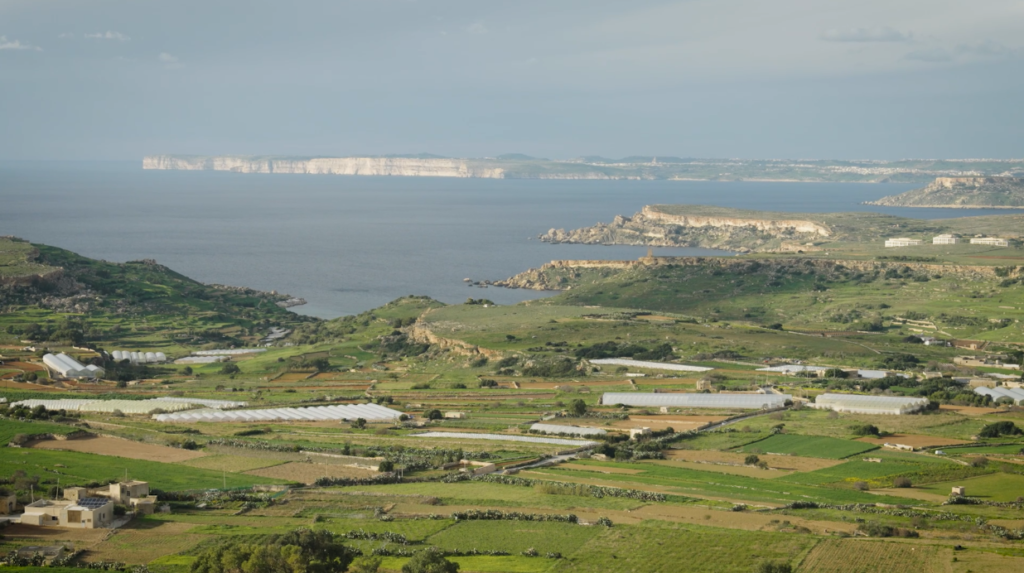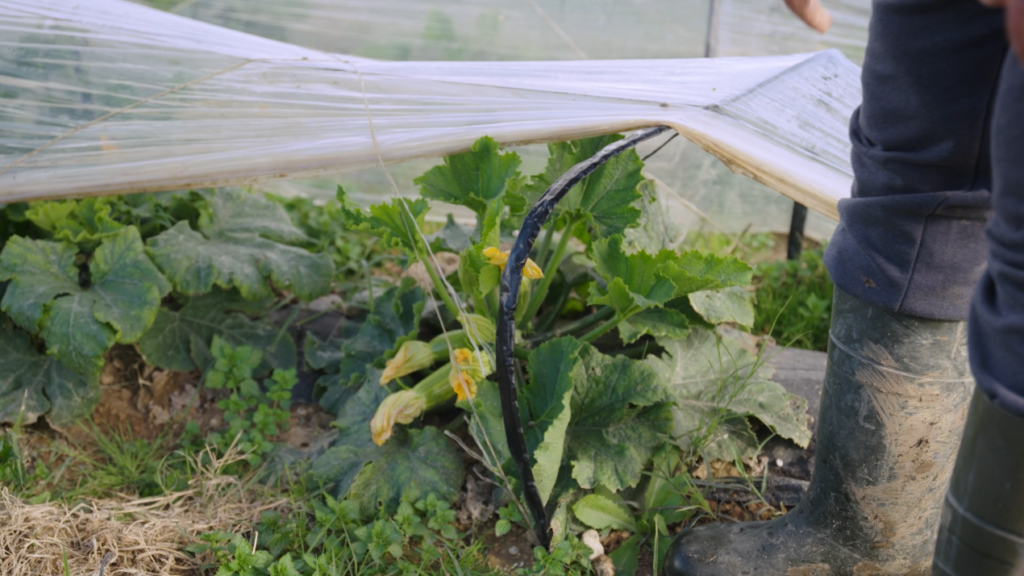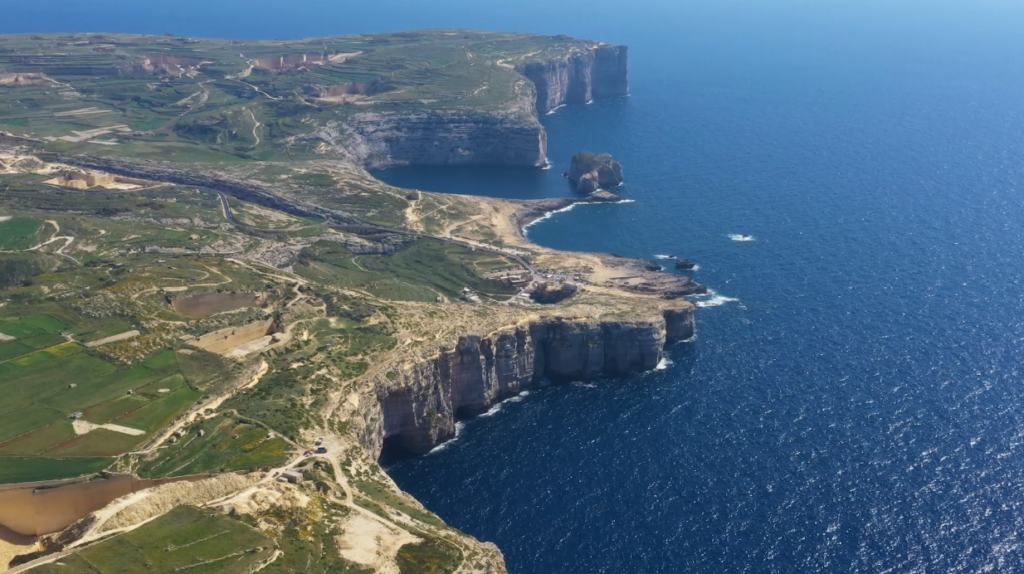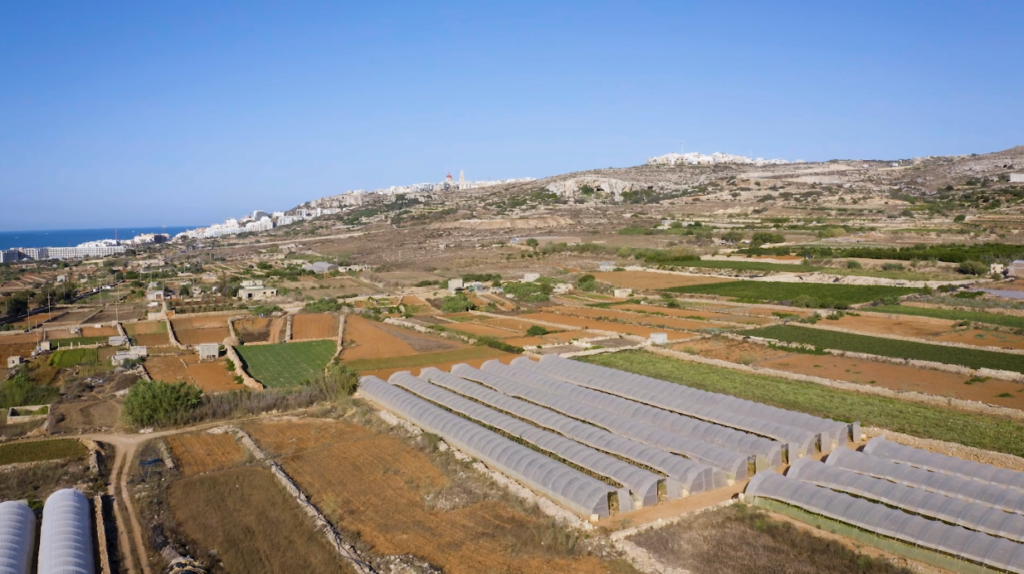NOMAD Project Hopes to Solve Malta’s Water Shortage Problem
“Malta is a small island that is currently facing a big problem due to water scarcity.”
– Paul Portelli (farmer)
On the outskirts of Rabat, Malta, farmers like Paul Portelli have a water problem. After taking over the farm from his father when he retired, Portelli has been growing a range of crops, from strawberries to spring onions, but his livelihood is now under threat.
“Malta is a small island that is currently facing a big problem due to water scarcity,” says Portelli.
According to research from 2020, Malta is the most water stressed country in the whole of Europe. Reduced quality of groundwater – due to nitrate pollution and saltwater intrusion – in combination with over-extraction has made the problem worse. The country already resorts to the desalination of seawater in order to meet its water demands. There are concerns that there will be severe impacts on local communities if things don’t improve.
“We farmers must use as little water as possible, but obviously this has to be according to the needs of the product,” says Portelli. They can’t use too much groundwater, for example, because the quality will drop further, making it too salty and unusable for crops in the long term.
“Since last year the basic expenses for farmers have exponentially increased. The risks are high, the climate is changing and lots of factors are against us,” explains Portelli. One of the biggest costs, he says, is the electricity needed for pumping up groundwater. Raising costs and declining water quality paint a bleak picture for Malta. “Then we will become an island which grows nothing of its own and will depend on imports,” he says.


“The NOMAD truck has several benefits, one of them being that the outputs of the truck can be used by farmers, especially in remote areas,”
– Jeanice Mallia (water quality engineer)
The EU-funded project NOMAD might have found an answer to Malta’s water problems. NOMAD researchers have developed a process in which water can be extracted from sewage and treated so that it can be used in crop irrigation. Said water can then be transported by trucks and delivered to farms in need – alleviating some of the pressure on farmers.
“The NOMAD truck has several benefits, one of them being that the outputs of the truck can be used by farmers, especially in remote areas,” says Jeanice Mallia, a water quality engineer at Water Services Corporation, and site coordinator for the NOMAD project. Mallia oversees the entire process, ensuring that human waste is transformed into usable resources.
The solid sludge is separated from the liquid across multiple steps, starting with manual separation, followed by the use of a centrifuge. Any solid remains are sent to digesters which use microbes to break down the waste into biogas. The liquid parts then go through two treatment processes before it’s ready to reuse as water for irrigation.
The leftover solid waste can also be used to solve another problem plaguing Malta.

“The target of NOMAD is to take the digestate and reduce the level of contaminants in a manner that it would be suitable for use in agriculture,”
– Stefan Cachia (senior consultant)
“Malta has a major problem when it comes to the nitrates,” says Stefan Cachia of Atriga Consulting Services, a partner involved in the NOMAD project. He adds that some areas are considered “nitrate vulnerable zones” due to the very high level of nitrates in the groundwater. Authorities in Malta are monitoring the water on a monthly basis to ensure they safeguard their freshwater reserves.
These high nitrate levels means that farmers aren’t able to use manure, meaning they have to import fertilisers from outside of the country.
“The target of NOMAD is to take the digestate and reduce the level of contaminants in a manner that it would be suitable for use in agriculture,” says Cachia. He describes the entire process as “win-win-win” as it generates electricity, produces water that can be used, and they don’t have to import fertiliser.
At the moment, however, the project is still in the early stages. Cachia says that once they start to see results they will know whether the system they’ve developed is worth pursuing in the long term. Portelli is himself excited about the opportunity to use the water from the NOMAD project, as it would help with his outgoing costs.
“Farmers need help and I think, personally speaking, I will try it out and will encourage other farmers to also do so,” he says. “That is a good source of water which will enable the farmers to carry on with their work. If we use this treated water, we will reduce our expenses and obviously also use less electricity in the country.”
It’s important to Portelli, however, that the water is distributed fairly, and that the water should go to the farmers who need it the most.
“Farmers cannot continue working like this as some have access to treated water and others don’t,” he says.


article by Jack McGovan